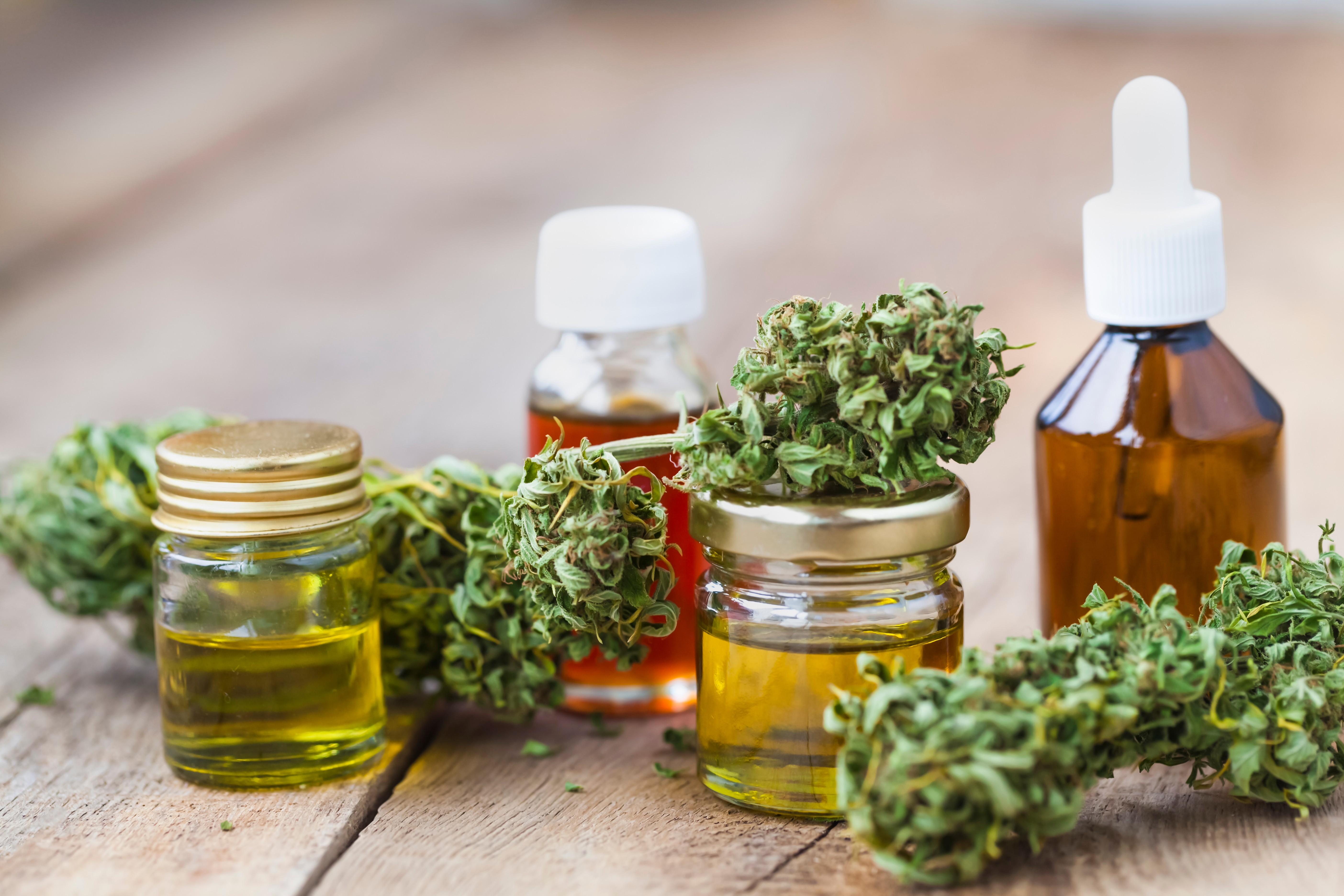As Canada ushered in legal cannabis consumption last week, many consumer products companies and retailers are wondering whether delving into the space will be worthwhile. The answer is probably yes, according to a new survey gauging American and Canadian consumer attitudes toward legalized cannabis.
The study assessed 2,000 American and Canadian consumers’ attitudes toward marijuana and cannabis-based or infused products and revealed that 76% would try medicinal cannabis products. About half would try cannabis-enhanced consumer products such as snack foods (55%), nutritional supplements (50%) and cosmetics (43%).
Global management consulting firm A.T. Kearney, which conducted the report, concluded that these statistics indicate a major market potential for CPG companies and retailers across the non-psychoactive CBD space as well as recreational cannabis.
“With legalization happening in Canada, we have seen a lot of interest from beverage and alcohol companies investing in the space. There’s a big shift toward acceptance, and we also know that there are lots of applications for non-psychoactive cannabis in cosmetics, personal care products, and more,” Randy Burt, partner at the consumer and retail practice of A.T. Kearney, told AgFunderNews.
Cannabis’ role as an intoxicant is fairly well known, but the market for cannabis products that don’t lead to a psychoactive effect — or high — may be even larger than the recreational market. The study found that over 75% of respondents were aware that cannabis has beneficial but non-psychoactive components. Across all age groups, approximately 80% agreed or strongly agreed that cannabis products offer wellness or therapeutic benefits.
As for the recreational market, the study found over half of the respondents are willing to try recreational cannabis when, or if, it becomes legal.
Another study released this week shows that 16% of all US adults – over 38 million people — already use cannabis, with 10% of the total US population consuming at least once a month and 4% on a daily basis. Among US cannabis consumers, 26% (over 10 million people) consume daily, 55% are recreational consumers, while 15% are medical, and 29% report both kinds of use.
Cannabis Product Additions Will Likely Boost Consumer Approval
Some companies have remained wary of the cannabis space for fear of losing consumers who are opposed to the plant for a variety of reasons, explains A.T. Kearney’s Burt. According to the survey results, however, consumers would likely increase their approval of companies that rolled out a CBD or cannabis-infused product.
When asked, “How would you perceive your favorite brand if they launched a product containing cannabis?” 86% of American and 84% of Canadian respondents indicated their perceptions would be improved or would not change. Drilling down on those sentiments revealed almost half of all respondents (49%) said they would buy more frequently from brands offering cannabis products; 46% would feel more loyal to those brands; 36% felt that the brands would better represent their values; and 42% would see brands bringing cannabis products to market as innovative or trendy.
“I think these results indicate that CPG companies need to have a strategy to approach this market and understand whether it fits with the company and what they are trying to do,” Burt says. “The usual product testing, evolving, and branding will need to be done. Companies will need to understand the products, the market, and their potential consumers.”
Specifically, the study concluded that companies in the health and wellness space, and beauty and personal care space, would see an improvement in public perception if they launched a non-psychoactive CBD wellness product.
Moreover, curious consumers are more likely to try cannabis if it was included or infused in foods, supplements, cosmetics, or skin care products according to the report. Surprisingly, most survey respondents who said they would try recreational cannabis indicated that they would consume it in place of beer.
“What made us ask this is that cannabis-infused beverages could become a substitute for alcohol. There are harmful effects associated with alcohol consumption like liver damage that many people want to avoid,” Burt says. “If you think about the explosion in craft beer, flavored spirits, wine varieties, hard ciders and sodas, or tonics, consumers are showing a real thirst for diversity in flavor profile and experience.”
Brand Integrity and Trust Will be a Main Deciding Factor
Consumers won’t just try any cannabis product, however. The survey suggests that brand integrity will be a major driver in determining which products curious buyers will add to their shopping carts. Although 79% of survey respondents believe that the products have strong therapeutic applications, they expressed a strong need to be able to trust the companies bringing the products to market. Nearly three-quarters of U.S. and Canadian respondents 72% and 73%, respectively) indicated that brand was very or somewhat important in assessing the quality and safety of products derived from, or infused with, cannabis.
Some Stalwarts Remain
Not everyone is eager to jump on the cannabis bandwagon. Religious or value-based beliefs drove many of the individuals who indicated that they would not try cannabis even if it was included as a non-psychoactive ingredient in a CPG product. Despite this, the momentum behind cannabis decriminalization shows no signs of stopping. While it’s now legal in Canada, some 30 states in the US have legalized medical cannabis consumption while nine have adopted recreational use laws. Reform of cannabis laws will be on the ballot this November in Michigan, Missouri, North Dakota, and Utah.
Even though consumers are largely encouraging companies to dabble in the cannabis-infused product space, Burt does not think going green will be a necessary step in order for brands to stay relevant.
“I don’t think it will be that dramatic. It is an important market opportunity and I think there is a risk of losing share in certain categories if you don’t develop this sort of product, but it’s not a bet-the-company kind of thing.”





